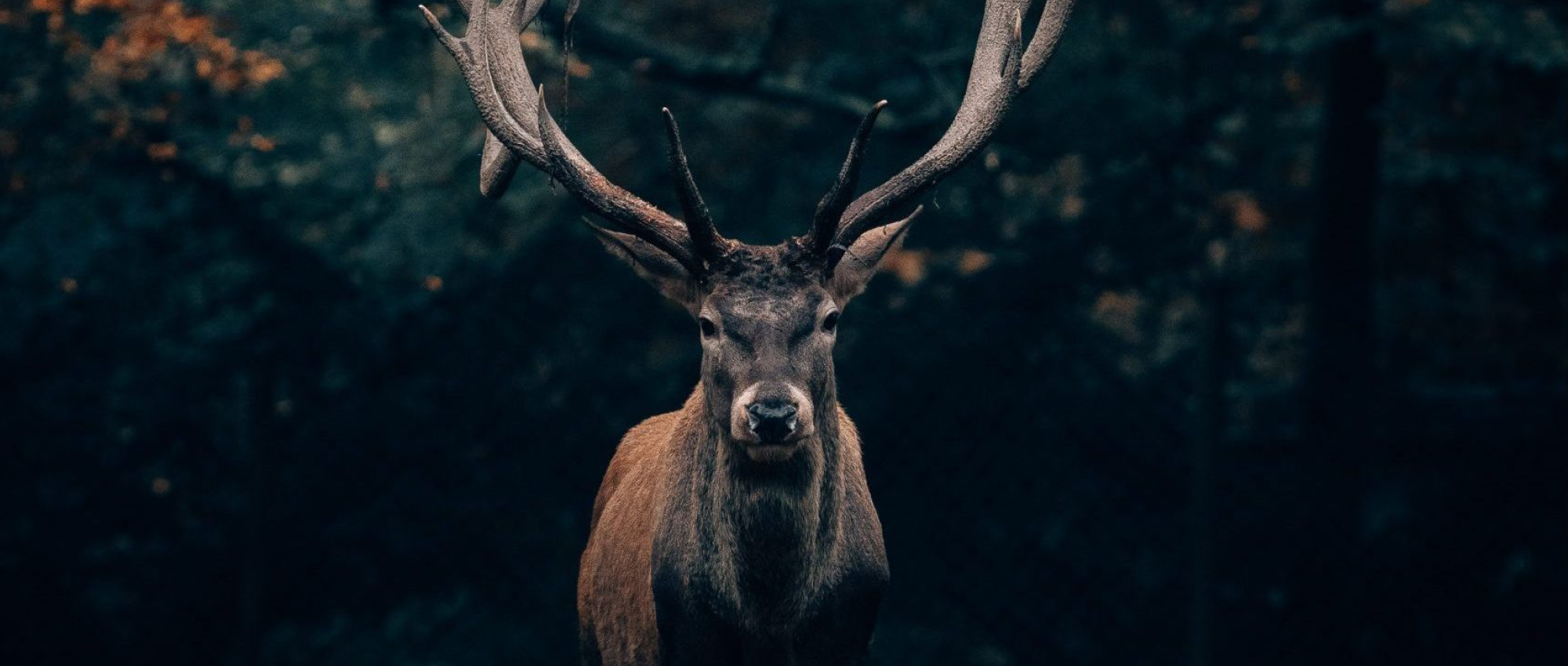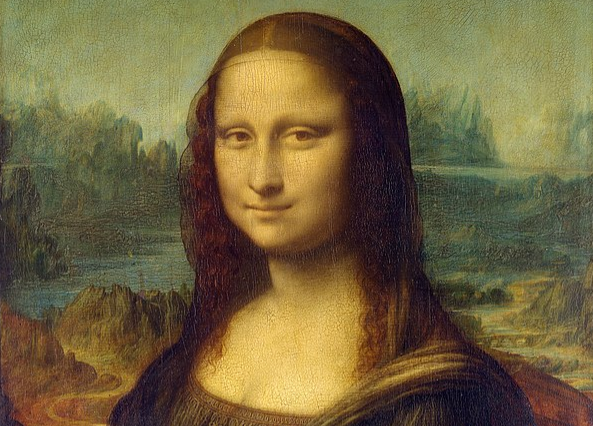Professor Daniela Boccassini shares about the role of art, literature and ‘bewilderment’ in raising our consciousness, in order to save the planet from destruction caused by ‘ego-centered’ worldviews. Her course, Romance Studies 420 (cross-listed with ITAL 404 and ITST 414), is open to students from all backgrounds who are interested in exploring alternative ‘eco-centered’ perspectives.


“Poets and artists, visionaries of all kinds, have taught us that this is the way for us to live a fulfilled human life: in communion with the more-than-human world, not through the suppression or extinction of its presence on the planet and within our consciousness.”
Challenging the ‘Ego-centered’ Worldview with ‘Eco-centered’ Perspectives
Both the pandemic and climate “change” have been sparked by the fact that we human beings have reached a tipping point in our objectifying relationship with planet Earth and with the entire other-than-human world that also calls this planet home.
The human species has taken over the planet and we have now come to view everything as a resource to be exploited for our benefit, regardless of the consequences. Through consumerism and advertising, we are unceasingly and subliminally taught all kinds of ways to objectify our world. Everything and everyone, from this perspective, is a potential object for our boundless desire and our (to a large extent, illusory) will to power.
In order to survive the present Anthropocene era, we need to gain a renewed awareness of the essential fact that the Earth is our home, our dwelling place, and one that we share with other living beings on whom our own existence is predicated.
The prefix “eco-“, as in “eco-logy” (but also as in “eco-nomy”!) comes from the ancient Greek word oikos, meaning “home” or “dwelling place”. What kind of eco-logy and of eco-nomy do we need to foster as a society, globally and locally, to make sure that we don’t keep carelessly sawing the branch upon which we seem unaware of being seated?
My Romance Studies course Think Like a Forest: A Dialogue Between Pre-Modern Worldviews, Environmental Humanities, amd Indigenous Knowledge (RMST 420) offers alternative perspectives that are “eco-centered” rather than “ego-centered.”
From ‘Unconscious’ to ‘Conscious’: The Power of Changing How We Think
Everything we do is the result of how we think, whether consciously or unconsciously, and each choice has different consequences in the short, medium, and long term. Depending on how we choose to think, this emergency can either take us headfirst into an even bigger catastrophe, or become a point of healing where a different relationship to the living world emerges from our consciousness, orients our worldview, and shapes our behavior.
The problem is that most of our choices happen unconsciously, as they are dictated by the needs and orientations of the society we live in. The “ego-centered” (or anthropocentric) worldview is now so widespread, so ingrained, and so synonymous with “civilization” that it has sunk deep into our unconscious: we have become convinced that this is the one and only way to be and to live as human beings.
But what kind of path can we follow in order to release something unconscious into the light of consciousness? What kind of mirror can we hold in order to see ourselves from a different vantage point? How can we come to realize that all things are not just relative, but rather, they are all related — in ways we can hardly fathom?
From my experience, bewilderment is the key that unlocks the door of our mind to wonder, thus opening it to different vistas that allow us to realize our vital relationship with our complex world — a world that surpasses our wildest imaginations, all of which are too tame anyway, for they are lost in ego-centered dreams of unceasing aggrandizement.
That is why my course unpacks three “bewildering” alternative perspectives — Pre-Modern Worldviews, Environmental Humanities, and Indigenous Knowledge — because each one of them looks at the world differently, while together, create a conversation worth listening to. Only in this way, I think, can we be shadowed by their spell and hopefully learn different ways to experience life on this planet.
The Role of Art & Literature


The Mona Lisa by Leonardo da Vinci (1503–1506)
From one generation to the next, in all places and cultures, the voice and the hand of humans have sought to touch the mystery of existence so as to heighten it, rather than dispel its aura.
Poets and artists, visionaries of all kinds, have taught us that this is the way, the only way, for us to live a fulfilled human life: in communion with the more-than-human world, not through the suppression or extinction of its presence on the planet and within our consciousness.
This is the language of ‘wildness’, a language we are now summoned to remember. In order to do so, we have to go seek it where, like spring water, its murmur can still be heard. We need to enter the forest of our memory, and learn the art of thinking in the way a forest does. This is why, in my course, we will explore different pieces of artwork and literature throughout the centuries.
A forest is a place where life thrives in abundance and diversity. Even science is telling us that we are turning our planet into a desert — so we need to remember ‘forest-thinking’ before it’s too late.
Taking our cue from the forest, we can find solace in the fact that while a wild a fire can bring about destruction, it can also bring about the consummation of the dried-out part of the vegetation; the stern strengthening of the strongest plants; and a most powerful fertilization of the soil, which will allow new life to emerge with renewed vitality.
A Moment of Heightened Awareness
I would like to close this article by sharing an excerpt from a piece I wrote this summer, a reflection I was able to behold within the mirror of what I felt was a moment of heightened awareness. We encounter those moments only if we train our mind to sink into this kind of open-ended listening.
A young deer came by me yesterday, as I was tending my zucchini — or, more likely, I came by him, as he was nibbling his salal. So silent was he, I did not notice his presence until his legs happened to scratch the papery leaves. And there we were: him, raising his tender, sprouting antlers toward me; me, turning my head towards the crackle that was summoning me. Our eyes locked, bodies suspended in mute mirroring: for an instantaneous eternity, I found myself breathing in a place where language is an inter-species experience, shared between living beings.
I read sadness in his look, an emaciated resignation in his countenance, a muted sense of existential loneliness that neither fear nor habit could possibly fill. «Is there a memory of ancient forest habitat still running in your veins, shaping your dreams?», a voice whispered within me — unable to discern who was asking the question or to whom. Now that question haunts me.
Is there a memory of ancient forest habitat still running in our veins, inhabiting our dreams? What would the world look like if we could remember that far, dream that deep?
About Romance Studies 420
RMST 420: Think Like a Forest: A Dialogue Between Pre-Modern Worldviews, Environmental Humanities, amd Indigenous Knowledge is a fourth-year Romance Studies course taught by Dr. Daniela Boccassini. With no prerequisites, it is open to students from all backgrounds who are familiar with an academic approach to reading, writing, and discussing. This course is cross-listed with ITAL 404 and ITST 414.


